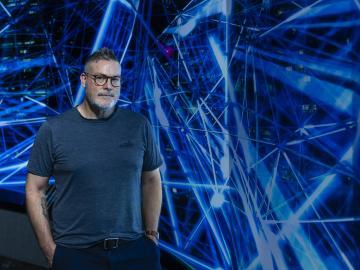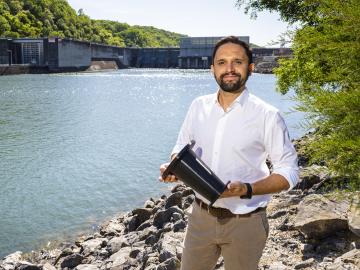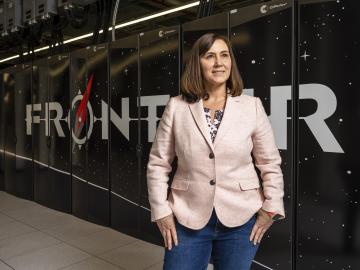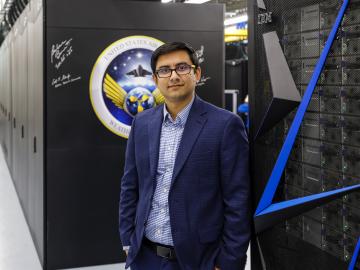Filter News
Area of Research
Date
News Topics
- (-) Frontier (2)
- (-) Hydropower (2)
- 3-D Printing/Advanced Manufacturing (12)
- Advanced Reactors (2)
- Artificial Intelligence (3)
- Big Data (5)
- Bioenergy (16)
- Biology (20)
- Biomedical (8)
- Biotechnology (3)
- Buildings (9)
- Chemical Sciences (8)
- Clean Water (6)
- Climate Change (14)
- Composites (2)
- Computer Science (12)
- Coronavirus (6)
- Critical Materials (1)
- Cybersecurity (6)
- Decarbonization (14)
- Energy Storage (14)
- Environment (36)
- Exascale Computing (2)
- Fusion (7)
- Grid (7)
- High-Performance Computing (8)
- Isotopes (8)
- ITER (1)
- Machine Learning (4)
- Materials (7)
- Materials Science (12)
- Mathematics (3)
- Mercury (4)
- Microscopy (9)
- Nanotechnology (6)
- National Security (15)
- Net Zero (2)
- Neutron Science (8)
- Nuclear Energy (14)
- Physics (16)
- Polymers (5)
- Quantum Computing (1)
- Quantum Science (2)
- Security (6)
- Simulation (4)
- Summit (2)
- Sustainable Energy (13)
- Transportation (12)
Media Contacts


Mirko Musa spent his childhood zigzagging his bike along the Po River. The Po, Italy’s longest river, cuts through a lush valley of grain and vegetable fields, which look like a green and gold ocean spreading out from the river’s banks.

At the National Center for Computational Sciences, Ashley Barker enjoys one of the least complicated–sounding job titles at ORNL: section head of operations. But within that seemingly ordinary designation lurks a multitude of demanding roles as she oversees the complete user experience for NCCS computer systems.

Climate change often comes down to how it affects water, whether it’s for drinking, electricity generation, or how flooding affects people and infrastructure. To better understand these impacts, ORNL water resources engineer Sudershan Gangrade is integrating knowledge ranging from large-scale climate projections to local meteorology and hydrology and using high-performance computing to create a holistic view of the future.




